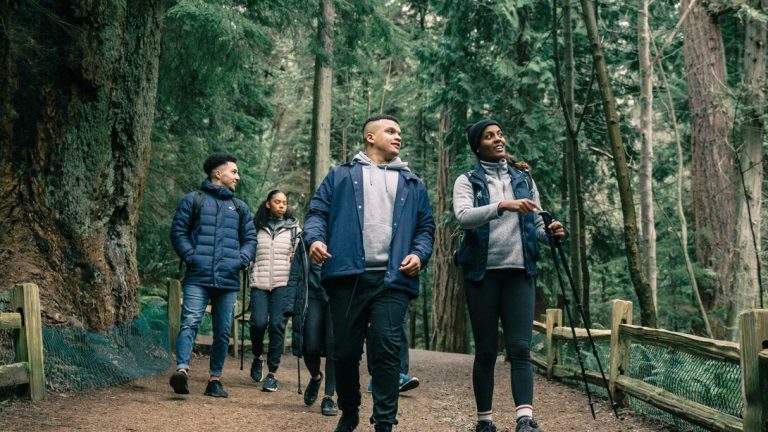In an era where environmental responsibility is paramount, a surge of regenerative adventures is reshaping the way individuals interact with America’s wilderness. These experiences not only prioritize low-impact exploration but actively contribute to the restoration and conservation of natural ecosystems. From regenerative hiking practices to immersive conservation expeditions, this article explores how adventurers can play a vital role in nurturing and revitalizing the beauty of the American wilderness.

- Carbon-Neutral Hiking: Offsetting Footprints in Nature’s Tapestry For eco-conscious hikers, the concept of carbon-neutral hiking goes beyond Leave No Trace principles. Adventurers can now participate in programs that calculate and offset the carbon footprint of their journeys. Exploring the Appalachian Trail or the Pacific Crest Trail becomes an opportunity not only to savor scenic landscapes but also to actively contribute to carbon sequestration initiatives and reforestation projects.
- Permaculture Immersions: Sustainable Living in the Backcountry Permaculture immersions offer a deep dive into sustainable living practices in the heart of the wilderness. Participants can engage in regenerative agriculture, learn about native plant propagation, and explore holistic land management strategies. Backcountry locations, such as the Sierra Nevada or the Ozark Mountains, provide immersive settings where adventurers actively contribute to regenerating the land they traverse.
- Wildlife Corridor Conservation: Protecting Biodiversity Highways Embarking on wildlife corridor conservation expeditions allows adventurers to actively participate in protecting critical pathways for wildlife migration. Traversing the Yellowstone-to-Yukon corridor or the Florida Wildlife Corridor, participants contribute to preserving biodiversity by supporting initiatives that maintain natural connectivity for species, ensuring the flourishing of ecosystems across vast landscapes.
- Sustainable Fly Fishing: Catch-and-Release Ethics Fly fishing enthusiasts can adopt sustainable practices that prioritize the health of aquatic ecosystems. Engaging in catch-and-release fishing in pristine locations like Montana’s trout-rich rivers or the clear streams of Appalachia ensures the preservation of fish populations and their habitats. Ethical angling practices contribute to the conservation of waterways and the overall health of aquatic ecosystems.
- Reforestation Retreats: Planting Seeds of Change Reforestation retreats offer a hands-on approach to healing landscapes scarred by deforestation or wildfires. Participants, whether in the recovering forests of California or the Appalachian hardwoods, engage in tree planting initiatives, fostering the growth of new forests and contributing to the restoration of ecosystems. These regenerative adventures provide a tangible way to leave a lasting positive impact on the environment.
- Conservation Canoeing: Paddling for Habitat Preservation Exploring waterways through conservation canoeing expeditions allows participants to actively engage in preserving aquatic habitats. Paddling through the Everglades or the Boundary Waters, adventurers contribute to habitat restoration projects, wetland conservation efforts, and water quality monitoring, promoting the health of fragile ecosystems.
Conclusion: Regenerative adventures represent a transformative approach to exploring America’s wilderness—one where participants actively nurture and restore the delicate balance of nature. From carbon-neutral hiking to conservation canoeing, these experiences embody a commitment to sustainability and environmental stewardship. As adventurers immerse themselves in these regenerative practices, they become integral partners in the ongoing effort to ensure the resilience and vitality of the American wilderness for generations to come.



